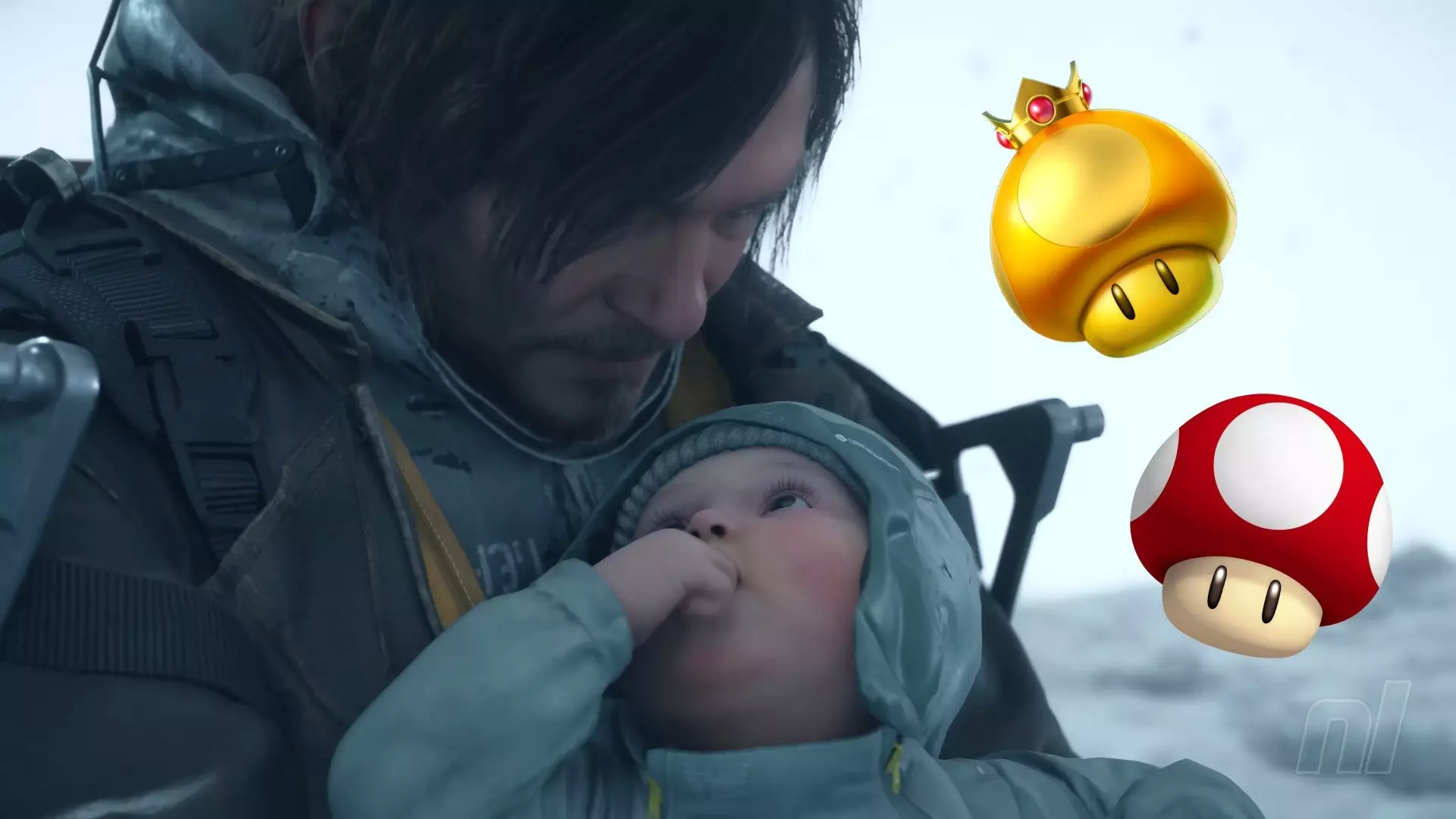Death Stranding was unlike anything most gamers had previously encountered, charming players with its distinctive take on exploration and connection in a desolate world. Now, with the release of Death Stranding 2: On The Beach, Hideo Kojima beckons fans back into his enigmatic universe, infusing it with new elements that both intrigue and surprise. Among these, curious hints and nods to classic gaming culture emerge, teasing players with the possibility of deeper connections.
The Curious Case of the Mushroom Badges
One of the most talked-about components of Death Stranding 2 is the Mushroom Badges that players can emblazon onto their backpacks. At first glance, these badges may seem like a whimsical adornment, but upon closer inspection, they reveal potential ties to the beloved Mushroom Kingdom of Nintendo fame. Specifically, the resemblance to the golden toadstools found in Mario games raises questions about the underlying thematic similarities between these two seemingly disparate worlds.
The inclusion of these Mushroom Badges is intriguing yet raises suspicions of intentionality on Kojima’s part. After all, the iconic portrayal of mushrooms in gaming often symbolizes power-ups or bonuses, and the similarities to Mario’s universe are striking. But do these elements constitute a straightforward homage, or do they hint at a deeper narrative thread connecting the protagonists’ journeys?
Awkward References or Genuine Parallels?
Kojima has a penchant for weaving layers of meaning into his narratives, and this time may be no different. Players familiar with the first Death Stranding title are aware of various offbeat references that skirt the edges of pop culture. The sequel seems to continue that trend, with players reminiscing about cringeworthy callbacks to Mario and Princess Peach in the prior game. Such allusions can spark discussions about character relationships and the complexities of human and emotional connections in the world Kojima has crafted.
The debate surrounding these references ignites when considering the juxtaposition of Mario’s lighthearted escapades with the somber themes present in Death Stranding. Critics and fans alike find themselves pondering whether these connections are unintentional quirks or deliberate gesturing by Kojima—a divergence into humor amidst a narrative saturated with weightiness.
Not Just Nostalgia: Crafting Connections
It’s essential to recognize that Kojima does not employ these references solely as nostalgic nods. Instead, they act as a lens through which players can view the relationships and struggles present in both franchises. The Mushroom Badges, while playful, encapsulate the idea of growth and transformation that is pervasive in both Mario games and the Death Stranding narrative. The primal urge to evolve and transcend one’s limitations becomes an enriching aspect—one that pushes players to explore beyond mere survival and embark on a journey of camaraderie.
Overall, the revelations concerning the Mushroom Badges and the ongoing discussion around potential Mario references in Death Stranding 2 paint a fascinating picture. They serve as a reminder that gaming is not merely about entertainment but also about the connections—both subtle and overt—that continue to shape narratives across time and space.


Leave a Reply